Probably not since the 2007 World Cup has Argentina been caught up in Puma-mania as it was after last Saturday’s first-ever victory against New Zealand. But more important than achieving their sole triumph since first playing the All Blacks in 1976 was the manner in which they won and the context.
Many – oh too many – times, historic Argentine wins have been based on guts, passion and love the for shirt and country. The matches were inevitably very tight and only the final whistle brought relief and joy. This time, all of those components were there, yet one could sense that it was Argentina’s day from the get-go.
It has been said that the All Blacks would need to be having their worst day and the Pumas having their best – adding a pinch of luck – to beat them. At the Bankwest Stadium, in Western Sydney, the Pumas were in sublime form and New Zealand were cut to pieces by a gnarly defensive system that did not give them space to breathe.
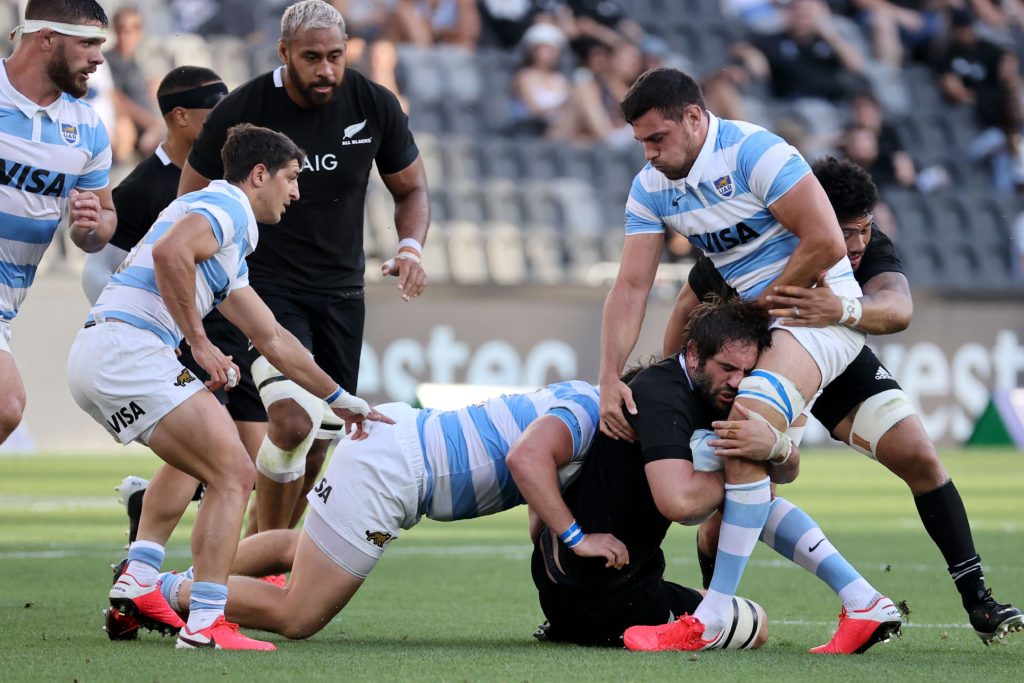
A team are only as good as they are allowed to be – and Mario Ledesma’s side did not give New Zealand an inch, two tacklers per carrier, the players fully comprehending a game plan that out-thought Ian Foster’s All Blacks.
Reasons for the 25-15 win are plenty but they all come down to the inner strength of a side who have fought many demons in the past year. Their previous game had been an easily forgettable win against the USA in Kumagaya, during an equally forgettable 2019 World Cup campaign.
Argentina lost their first game against France and that was it. As in Woody Allen’s ‘Match-point’, the ball can drop either side of the net. For this team, it wasn’t to be as a long-range penalty came within inches of a win. A loss to England with 14 players added to the heartache.
A lot of soul-searching ensued; big on that was coach Mario Ledesma, who failed to endear himself with his team in the previous two seasons. Covid-19 happened at the start of 2020 and despite all the misery that brought, it offered time to rebuild bridges and relocate the team’s mojo.
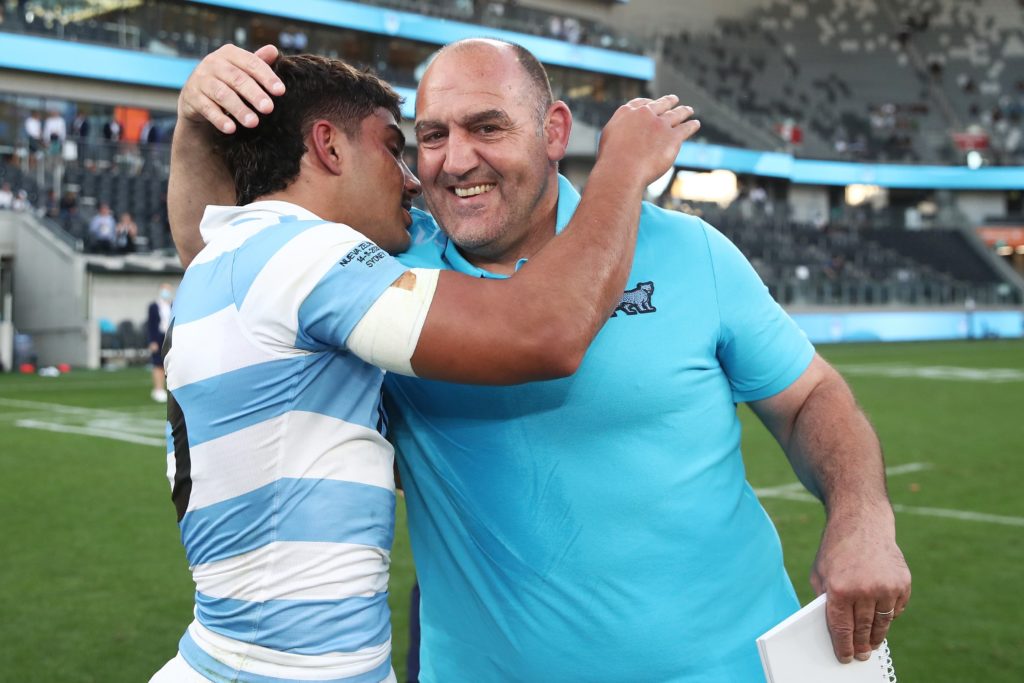
Things changed and so did Ledesma. He became more open, more approachable. “The players were very committed in those months of no competition and spoke a lot amongst themselves and with a psychologist,” said Ledesma.
“They spoke at length on the past until it was no longer an issue. As management, we also did our work; adding (former captain and coach) Marcelo Loffreda as rugby manager was important, adding (ex-Australia coach) Michael Cheika was also important. The pandemic gave us the opportunity to think of the future, of the past and live in the present.”
Living in the present was how they started to focus on a future as unclear as the murky waters of the River Plate. They pushed and pushed and never stopped pushing themselves, in conditions that were well captured by a video released by the Argentine Rugby Union on the eve of one of the top-three biggest wins for the Pumas.
It is easy to say that fly-half Nicolás Sánchez was the big hero… but he was just one cog in a well-prepared and well-oiled machine.
.Cynics might think that they released it to make their excuses if things did not to go to plan. A loss – and by a big margin – was to be acceptable and understandable.
Yet the players were convinced of a game plan designed to ensure they would be able to take control against an All Blacks side fearing a second consecutive loss, something none of the players involved had previously endured.
It is easy to say that fly-half Nicolás Sánchez was the big hero – scoring all of Argentina’s 25 points certainly puts you in that category – but he was just one cog in a well-prepared and well-oiled machine.
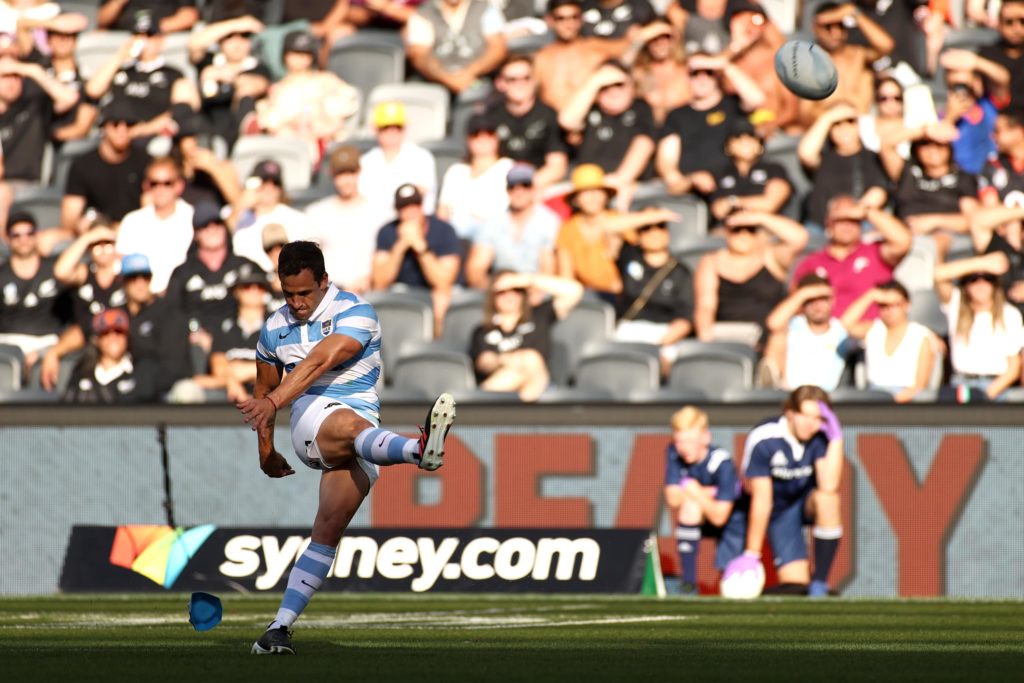
Sánchez said: “It was a very hard year and after the World Cup, we all had something inside of us. The pandemic helped us enormously to look within and transform ourselves.”
The Paris-based player, who had not seen eye to eye with Ledesma, thought his international days were well and truly over. He then tragically lost a sister, within weeks had his second child and, soon after, was amongst a group of 13 players in Europe asked to play for Argentina.
“The last four weeks of preparation were superb – the first two with the players that came from Europe, the other two with the rest of the guys that had been working at home, in Uruguay and arrived earlier in Sydney,” he said.“We prepared in a different way and we knew that if we kicked deep, they could not break our defence. Two tackles on each carrier, slowing their ball. It was something that would spur us.”
The certainty of what they were aiming for was clear. “We came to beat the All Blacks and achieving our goal makes us very happy,” he added.
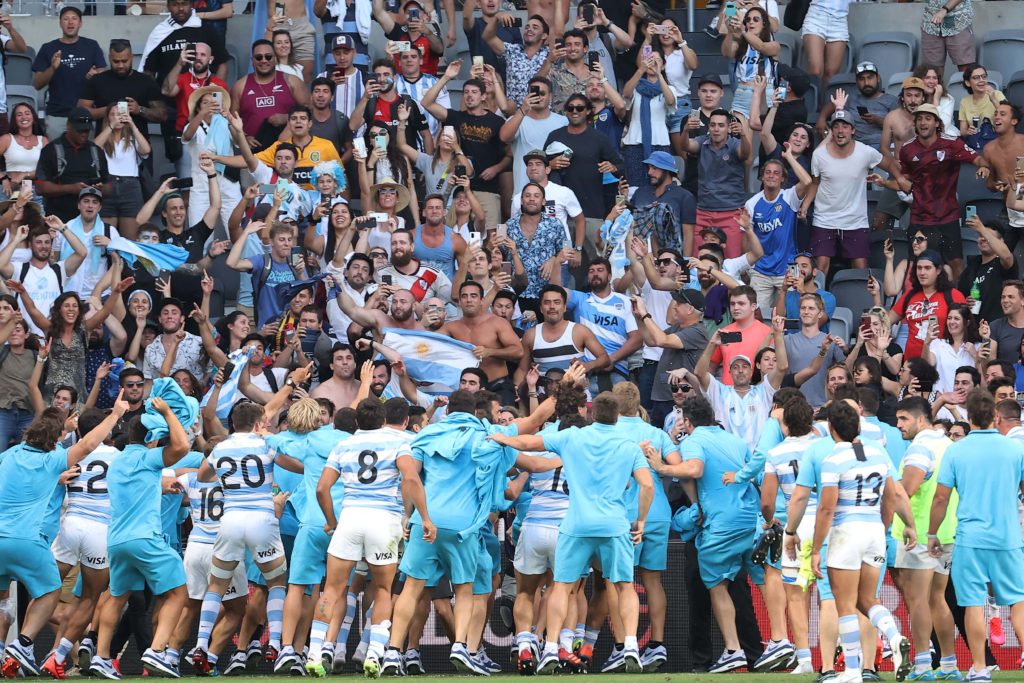
As the final whistle went, the crowd erupted. With a few thousand Argentines living in Australia in the stands, it was time to celebrate. Singing, dancing, hugging, crying. All in a very Latin, emotional way. One who did not share a tear – at least not publicly – was captain Pablo Matera.
When the role of a captain in rugby is next dissected, his face in front of the Haka and his words in the third minute to referee Angus Gardner made us quickly understand this was not to be your usual Pumas v All Blacks encounter.
After a small fracas, he was heard saying: “I can’t see a guy hitting the face of one of my team. That is not respect. I play for my country and that is not respect.” Boy, are they now respected!
With four crucial turnovers to his name, as clear as he was in addressing the referee and leading his team, Matera was front and centre for this momentous victory.
We came to give pride to those back home going through tough times, fighting hard. We played for them.
Argentina captain Pablo Matera
“We had eight very hard months, a lot of work from a lot of people, some of whom are not here,” he said.
“We have a hungry team in a country with hunger and today we came to give pride to those back home going through tough times, fighting hard. We played for them, to give them pride.”
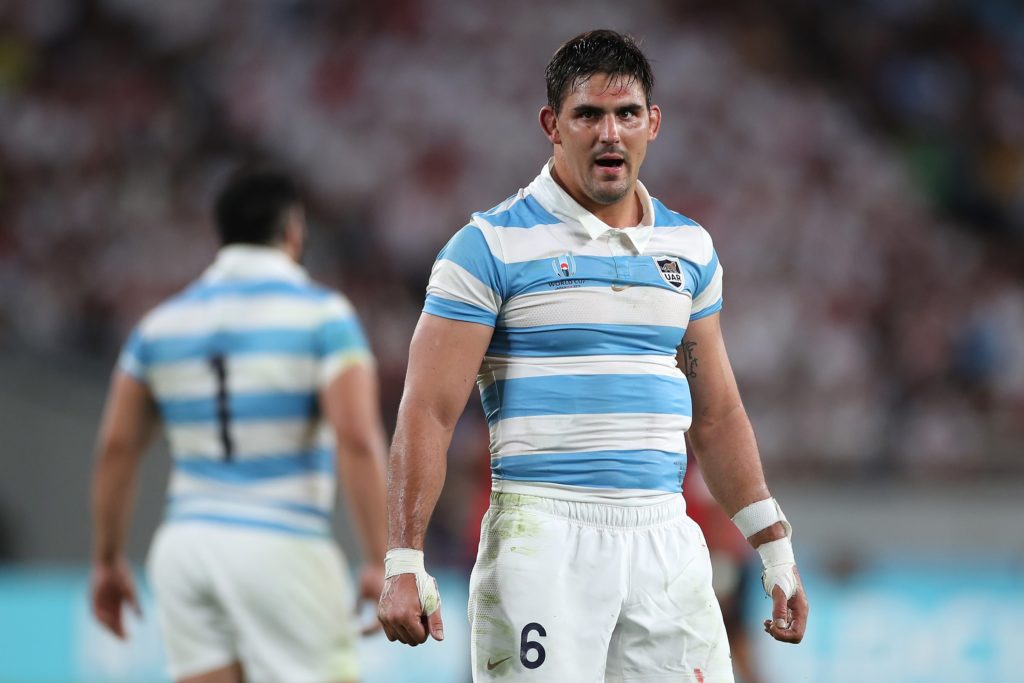
The history of Pumas rugby is full of passionate players, not many of which enjoyed huge successes. It was the construction of a legacy that led to this moment and Matera reflected it nicely: “There are a lot of guys that wore this shirt before we did, that fought as hard as we did to achieve this, and I want them to know that they achieved this with us. They were all small steps to get here. It is a much bigger than a win for 23 guys.”
It was a clear win and the team were better than the All Blacks. They won the one-on-one battle and dominated every aspect of the game.
Argentina legend Hugo Porta
In mentioning a Test history that started 110 years ago, many heroes wore the shirt. One of them was the great Hugo Porta, who scored the 21 points in the draw in 1985, the only time that the All Blacks had failed to beat Los Pumas.
“This is very moving. It was a clear win and the team were better than the All Blacks. They won the one-on-one battle and dominated every aspect of the game,” said the 69-year old, who admitted to crying tears of joy at the end of the game.
“This is very big for Argentine rugby; it shows the spirit of the players that starts at club level. At every club they must be sharing the joy.”
Another key player in the win, even though he last wore the No9 jersey in 2007, is Agustín Pichot, who tirelessly jumped on planes, lobbied and convinced World Rugby initially and then SANZAAR that Argentina deserved a place at the big table.
Players and staff made huge sacrifices in these past few months; this is theirs, part of their own history, their clubs, families and friends.
Former Pumas captain Agustín Pichot
Alone, on his computer – he was on a business trip – he enjoyed the win. As his phone was exploding with messages from every corner of the world, he refused to take the credit he deserves.
“Players and staff made huge sacrifices in these past few months; this is theirs, part of their own history, their clubs, families and friends,” he said.
“They played very well and there is no better thing than being proud of someone. That is how I feel about their families, their clubs and them.”
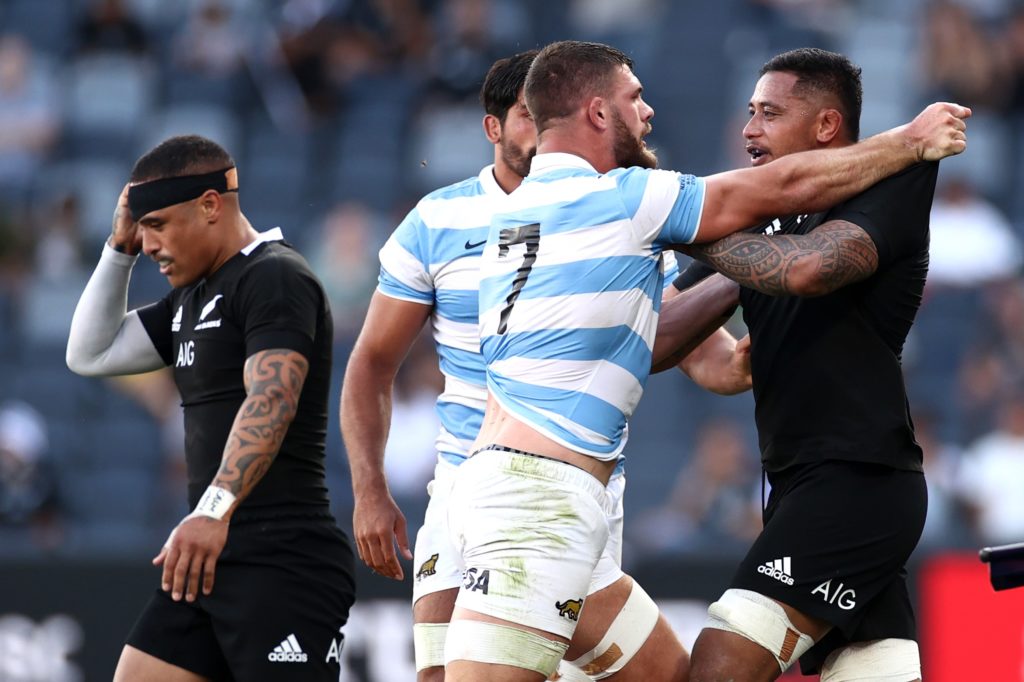
Who would have thought, when the world lost its shape due to Covid-19, that a few months later, when the world is still unable to bring some normality to our lives, this would happen?
Yet, if the win on Saturday is not followed by similar performances twice against the Wallabies and a rematch against the All Blacks, then it will be a flash in the pan. It is quite clear that Ledesma, Matera and a large group of committed players and staff, have turned a corner and it is doubtful that they will drop the high standard reached.
Victory and success don’t mean the same. This team are aiming to be successful and the next three weeks will continue to pave the way.
More stories from the Southern Hemisphere
If you’ve enjoyed this article, please share it with friends or on social media. We rely solely on new subscribers to fund high-quality journalism and appreciate you sharing this so we can continue to grow, produce more quality content and support our writers.


Comments
Join free and tell us what you really think!
Sign up for free